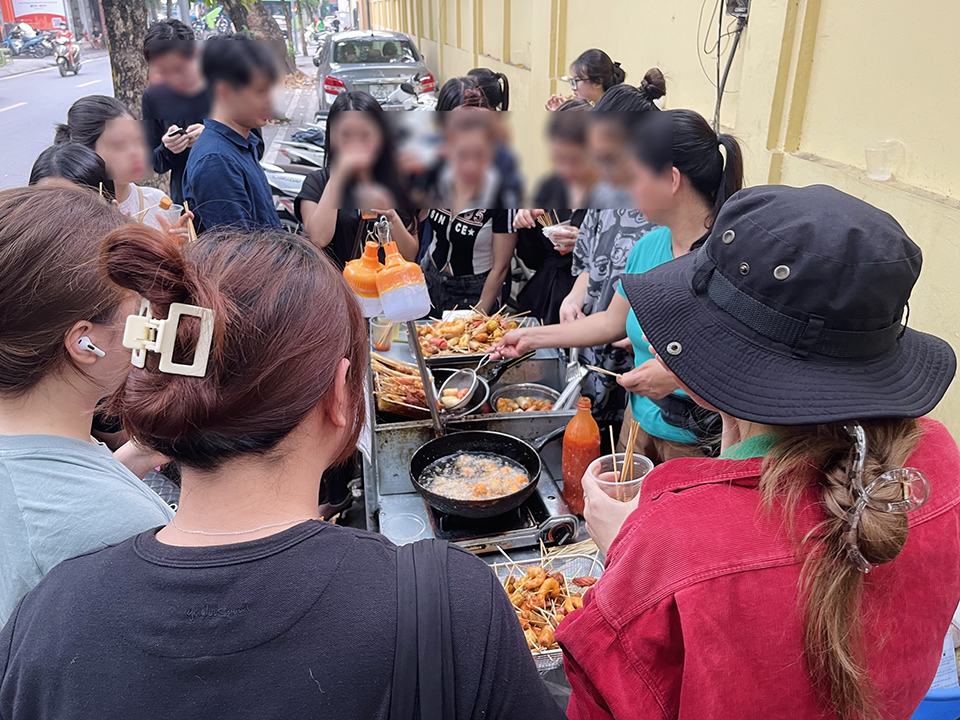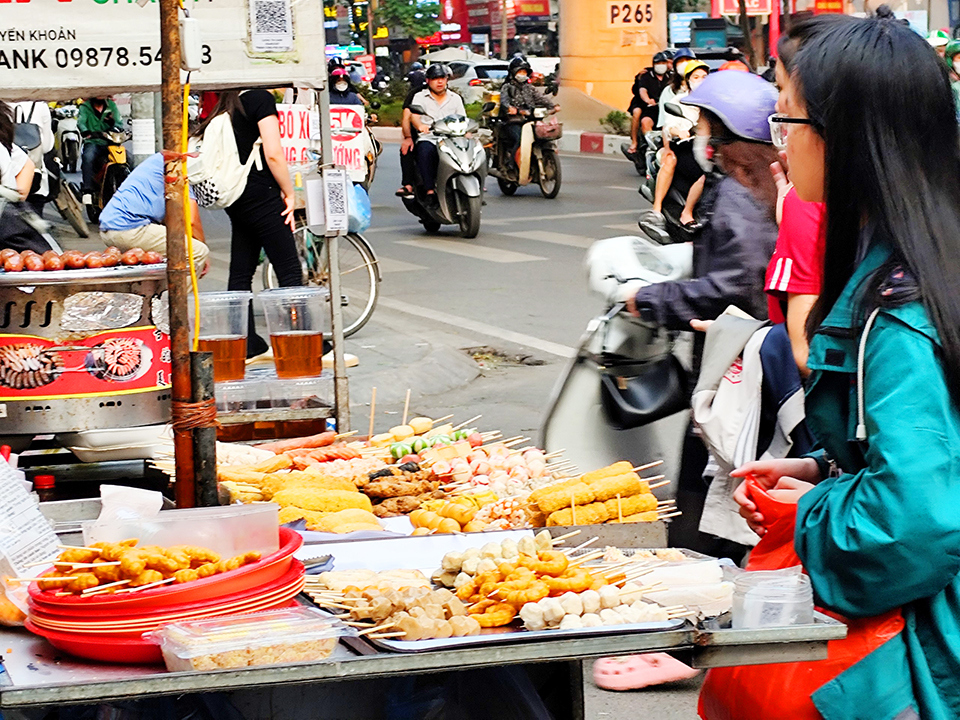Hanoi cracks down on fast-food stands near schools
Hanoi has focused on outreach and education to raise awareness about food safety near schools.
THE HANOI TIMES — Hanoi authorities are strictly carrying out inspections of fast food stalls around schools amid concerns over food safety.
The Hanoi Department of Health has a special plan to inspect the source of raw materials, food additives, cooking oil, grilled meat, skewers, and fast food.

Street food stalls along Phan Dinh Phung Street in Hanoi's Ba Dinh District are always crowded with young people. Photos: Ngoc Tu/The Hanoi Times
Street vendors around schools selling unhealthy food have been dealt with severely. In addition, the Hanoi Department of Health has disseminated food safety knowledge and poison prevention measures to business owners and street vendors.
Consuming unhygienic food can cause many serious health risks, such as: food poisoning, intestinal infections, digestive disorders, or long-term accumulation of toxins that can easily become carcinogens, according to the department.
Consumers are advised to choose clean restaurants. In particular, students should not buy food in dusty areas, places with high traffic, smoke and dust, or places that do not ensure food hygiene and safety.
The department said all food production and service businesses at the school gate must obtain food safety certification and commit to upholding these standards.
The city is also requiring training and health checks for anyone involved in food preparation near schools to prevent foodborne illness.
"There is a special focus on outreach and education to raise awareness about food safety near schools," Pham Thi Hien, Deputy Director of the Health Division in Dan Phuong District, told The Hanoi Times.
However, Hien noted that ensuring food safety in these areas is an ongoing challenge and requires continuous, long-term efforts rather than temporary, half-hearted measures.
Enforcement of food safety regulations
Hanoi's health sector has accelerated monitoring and inspections with targeted and short-notice visits to food businesses, suppliers, street vendors and canteens, while addressing violations.
Hanoi has more than 77,000 enterprises involved in food production, processing, trading, and street food vending. These include more than 10,000 food producers, nearly 25,500 food traders, over 35,000 food service providers, and around 5,800 street food vendors.

A snack stall on Xuan Thuy Street, Cau Giay District has all kinds of fried meatballs, shrimp skewers, chicken skewers, among others.
Over the past three months, the city has implemented a comprehensive program to ensure food safety, focusing on peak periods such as the Lunar New Year.
According to the Hanoi Food Safety and Hygiene Department, ensuring food safety has required close cooperation among various agencies and institutions responsible for food safety management.
The city has worked with neighboring provinces to control the sources of food ingredients supplied to Hanoi and to enable food traceability.
To prevent foodborne illness, Hanoi has set up a model to control food safety in all kitchens of 214 primary schools in the city, resulting in scrutinized management in those facilities across the city.
The health sector has also expanded the food safety model at large gatherings to proactively prevent food poisoning, covering 440 communes, wards and towns in 20 districts.
In Ba Vi District, where there are 120 schools and nearly 150 food service establishments, local management includes routine inspections by commune People's Committees.
"In the first three months of the year, nearly 100 establishments were inspected and 76% were found to meet food safety standards. Unauthorized snacks and food without a clear origin were confiscated and destroyed," Tran Quang Khuyen, Vice Chairman of Ba Vi District People's Committee, told The Hanoi Times.
A special plan has also been issued for the 2024-2025 school year to strengthen food safety checks around schools, Khuyen said, adding that more than 90% of establishments have met food safety criteria and ensured traceability of food sources.












